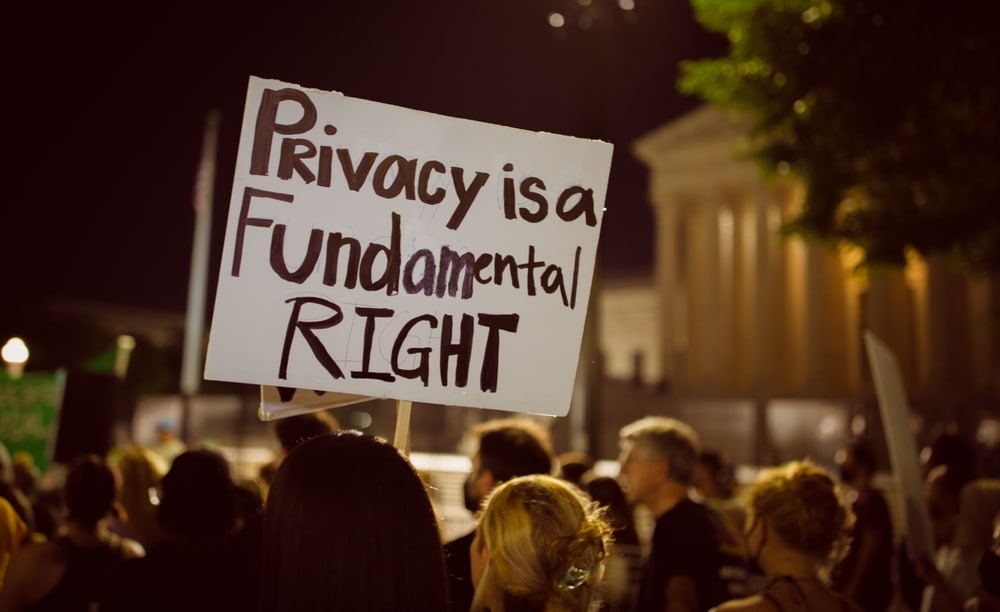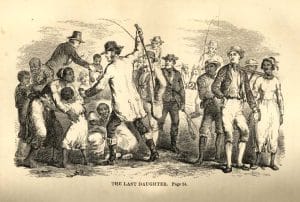Crisis pregnancy centers (CPCs), non-profit organizations created by anti-abortion groups in an attempt to steer women away from abortion, have been part of the reproductive health landscape in North America since the 1960s. Abortion activists have long sounded the alarm about CPCs’ deceptive practices, like advertising to people who are young, poor, and/or non-native English speakers; distributing false medical information; and pretending personal health information is covered under the Health Insurance Portability and Accountability Act (HIPAA) when it is in fact not. Women’s rights and other organizations have attempted to hold CPCs accountable by forcing them to be more honest about the services they do and do not provide, including right here in Pennsylvania.
CPCs’ goal is to provide alternatives to abortion, but you wouldn’t know it from looking at their websites. Anti-CPC advocates say that the issue is not the belief system of being anti-abortion, but their deceptive methods. CPCs specifically target women who are seeking abortion, and who may not be able to tell the difference between an actual medical provider and a non-profit that provides advice about abortion alternatives. Options Women’s Center (OWC), affiliated with Heartbeat International, operates two CPCs in Scranton and Honesdale in the Northeastern section of the state. OWC’s website has multiple photos of women wearing lab coats, scrubs, gloves, and stethoscopes, making it appear that they have medical professionals on staff who can offer abortion care. The website also states that they offer pregnancy testing and ultrasounds to confirm pregnancy, if the pregnancy is “viable,” and “how far along you are.”
At the tail end of 2024, the Campaign for Accountability (CfA), a nonprofit watchdog organization that “holds the powerful accountable,” filed a second complaint urging Pennsylvania state officials to investigate whether the Scranton-based unregulated CPC Options Women’s Center violated state law by posting misleading confidentiality statements on their website while engaging in deceptive data collection practices. OWC’s privacy policy on their website states that patients are able to file complaints with the U.S. Department of Health and Human Services (HHS) Office for Civil Rights (OCR), and had stated that patients at OWC are covered by HIPAA (after the initial complaint, OWC scrubbed this from its website). But OWC is not actually a medical facility and is not licensed or regulated by the PA Department of Health – it is a non-profit organization with not a single medical professional listed on its website.
Michelle Kuppersmith, CfA’s Executive Director, said, “Regardless of what you think about abortion in general, this is a very simple case of making sure that women know that when they walk through the doors of a crisis pregnancy center that their personal health information might not be as confident as these centers make them seem.”
READ: ‘Preconceived’ Documentary Uncovers the Reality Behind Anti-Abortion Crisis Pregnancy Centers
Women’s rights activists believe that the stock photos and medical language on CPC websites are purposefully misleading and harmful to the public. Tara Murtha, the Director of Impact and Engagement at the Women’s Law Project, told The Bucks County Beacon that “the CPC industry has sophisticated digital campaigns targeting low-income people and teenagers … the entire business model predicates on promoting misinformation about pregnancy and abortion. What we’re worried about and concerned about is this elaborate ruse of appearing to provide medical care for people when that is not occurring.”
Caroline Bojarski, member of the Philadelphia chapter of the Democratic Socialists of America and former co-chair of the chapter’s abortion rights working group, said that the chapter “wanted to start rebuilding a mass movement for abortion rights,” after the Dobbs decision. They targeted a CPC in downtown Philly, standing outside with signs, literature, and other information, “letting people know it was a fake clinic. We found out that a lot of people didn’t know what it actually was. We spoke to former patients there, and they’d be like, ‘oh yeah, I accidentally made an appointment, and then found out there weren’t any doctors there.’”
But it’s not just misinformation about services provided, it’s also about privacy and personal health data. Jessica Valenti, a writer with a newsletter focused on abortion called Abortion, Every Day, reported in spring 2024 that anti-abortion organization Heartbeat International has been “collecting and recklessly sharing women’s private health data with corporate employees, thousands of center trainees and, in one case, anyone with an internet connection.” (Heartbeat International posted a training video on their website with real patients’ full names, last menstrual period, and due dates, all from a CPC in Louisiana.) CfA filed a complaint with the OCR, but the agency was unable to investigate the data leak because neither the CPC itself or Heartbeat International are subject to HHS oversight, because they are not actually regulated medical clinics.
READ: Pennsylvania’s New Women’s Service Program Will Provide Inclusive Health Care
Information about abortion is downright confusing now, with laws varying from state to state. Murtha said “experts in disinformation call what we’re in an abortion info-demic, which has gotten worse since the reversal of Roe. People don’t even know if abortion is legal in their state or not anymore.” In 2021, abortion activists in Connecticut organized to pass a state law making crisis pregnancy centers’ deceptive advertising illegal. But in 2023, a crisis pregnancy center claimed that the new law violates the center’s free speech and free exercise of religion. They ended up withdrawing their suit, but its future – along with the future of abortion rights and crisis pregnancy centers – is uncertain in the current political climate.
Currently, it’s legal for CPCs to use federal and state money to fund their work. Congress Members Angie Craig and Josh Gottheimer have urged the Biden administration to adopt its proposed rule to restrict federal funding for them, but it remains to be seen if the administration will take this step in the last few weeks in power. President-Elect Trump’s opinions on abortion rights have been all over the place, but pro-choice activists have reason to believe that he will side with CPCs and the anti-abortion movement. Many feel that it will be up to states to protect consumers from CPCs’ deceptive advertising and privacy concerns, but in Pennsylvania, Republican Dave Sunday won the race for Attorney General, and his views on CPCs remain to be seen.
“Regardless of who the Attorney General is or what party they’re in, this is not a matter of ideology, it’s a matter of women’s private information and should be investigated just like if there were a data breach at a hospital,” said Campaign for Accountability’s Kuppersmith.







